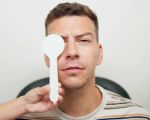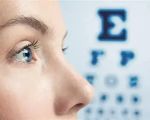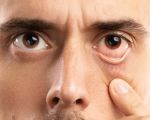- 1 - Understanding Eye Allergies and Irritation
- 2 - Common Symptoms and Causes of Eye Allergies
- 3 - Effective Treatments for Eye Allergies and Irritation
- 4 - Lifestyle Tips to Prevent and Manage Eye Irritation
- 5 - Real-Life Experiences and Professional Advice
1. Understanding Eye Allergies and Irritation
Eye allergies and irritation are common conditions that affect millions worldwide, often causing discomfort, redness, and watery eyes. These issues arise when the eyes react to allergens such as pollen, dust mites, pet dander, or environmental irritants. Understanding the mechanisms behind eye allergies helps in choosing the right treatments for eye allergies and irritation to effectively relieve symptoms and prevent complications.
Eye allergies, medically known as allergic conjunctivitis, involve an immune response where the eyes become inflamed due to allergen exposure. Irritation can also result from dryness, contact lens use, or exposure to smoke and chemicals. Differentiating between allergies and other causes of irritation is crucial for proper treatment.
1.1 How Allergens Affect the Eyes
When allergens contact the eye surface, they trigger the release of histamines, chemicals that cause itching, swelling, and redness. This immune reaction can lead to persistent discomfort if left untreated, making timely intervention essential.
2. Common Symptoms and Causes of Eye Allergies
Recognizing symptoms early helps in managing eye allergies effectively. Typical signs include itching, redness, swelling of the eyelids, excessive tearing, and a gritty sensation in the eyes. In some cases, blurred vision or sensitivity to light may also occur.
2.1 Typical Allergens Responsible
Pollen from trees, grass, and weeds is a primary seasonal allergen. Indoor allergens like dust mites, mold spores, and pet dander also frequently cause eye irritation year-round. Exposure to smoke, strong fragrances, or chlorine in pools can exacerbate symptoms.
2.2 Distinguishing Eye Allergies from Other Eye Conditions
Eye irritation can mimic infections or dry eye syndrome, so consulting a specialist is recommended. Proper diagnosis ensures that treatments for eye allergies and irritation are targeted and effective.
3. Effective Treatments for Eye Allergies and Irritation
Managing eye allergies involves a combination of avoiding triggers and applying appropriate treatments. Here are some of the most effective approaches:
3.1 Antihistamine and Mast Cell Stabilizer Eye Drops
These medications reduce histamine release and alleviate itching and redness. They are often the first line of treatment and can be used as needed during allergy seasons.
3.2 Artificial Tears and Lubricating Drops
For irritation caused by dryness or environmental factors, artificial tears help soothe and moisturize the eyes, reducing discomfort.
3.3 Cold Compresses and Eye Hygiene
Applying a cold compress can reduce swelling and itching. Maintaining clean eyelids and avoiding rubbing the eyes prevent further irritation and secondary infections.
3.4 Prescription Medications and Allergy Shots
In severe or persistent cases, eye doctors may prescribe corticosteroid drops or recommend immunotherapy (allergy shots) to desensitize the immune system to specific allergens.
4. Lifestyle Tips to Prevent and Manage Eye Irritation
In addition to treatments for eye allergies and irritation, lifestyle adjustments can play a key role in symptom prevention and relief.
4.1 Minimizing Allergen Exposure
Keeping windows closed during high pollen seasons, using air purifiers, and regularly washing bedding reduce indoor allergen levels.
4.2 Protective Eyewear
Wearing sunglasses outdoors shields eyes from pollen and UV rays, lowering the risk of irritation.
4.3 Proper Contact Lens Care
Following hygiene guidelines and limiting contact lens wear time helps prevent irritation and allergic reactions related to lenses.
5. Real-Life Experiences and Professional Advice
Jessica, who suffered from seasonal eye allergies, found significant relief after incorporating antihistamine eye drops and cold compresses into her routine, along with guidance from Eye Docs. She highlights that combining treatments with lifestyle changes like using air purifiers made a huge difference in her comfort.
Similarly, Mark struggled with year-round irritation due to indoor allergens. Professional consultation helped him identify triggers and customize a treatment plan that included mast cell stabilizer drops and regular eye hygiene, drastically improving his symptoms.
5.1 Trusting Expert Guidance and Resources
Consulting qualified professionals like those at Eye Docs ensures that treatments for eye allergies and irritation are safe, effective, and tailored to your needs. Access to expert advice and quality products supports long-term eye health and comfort.








